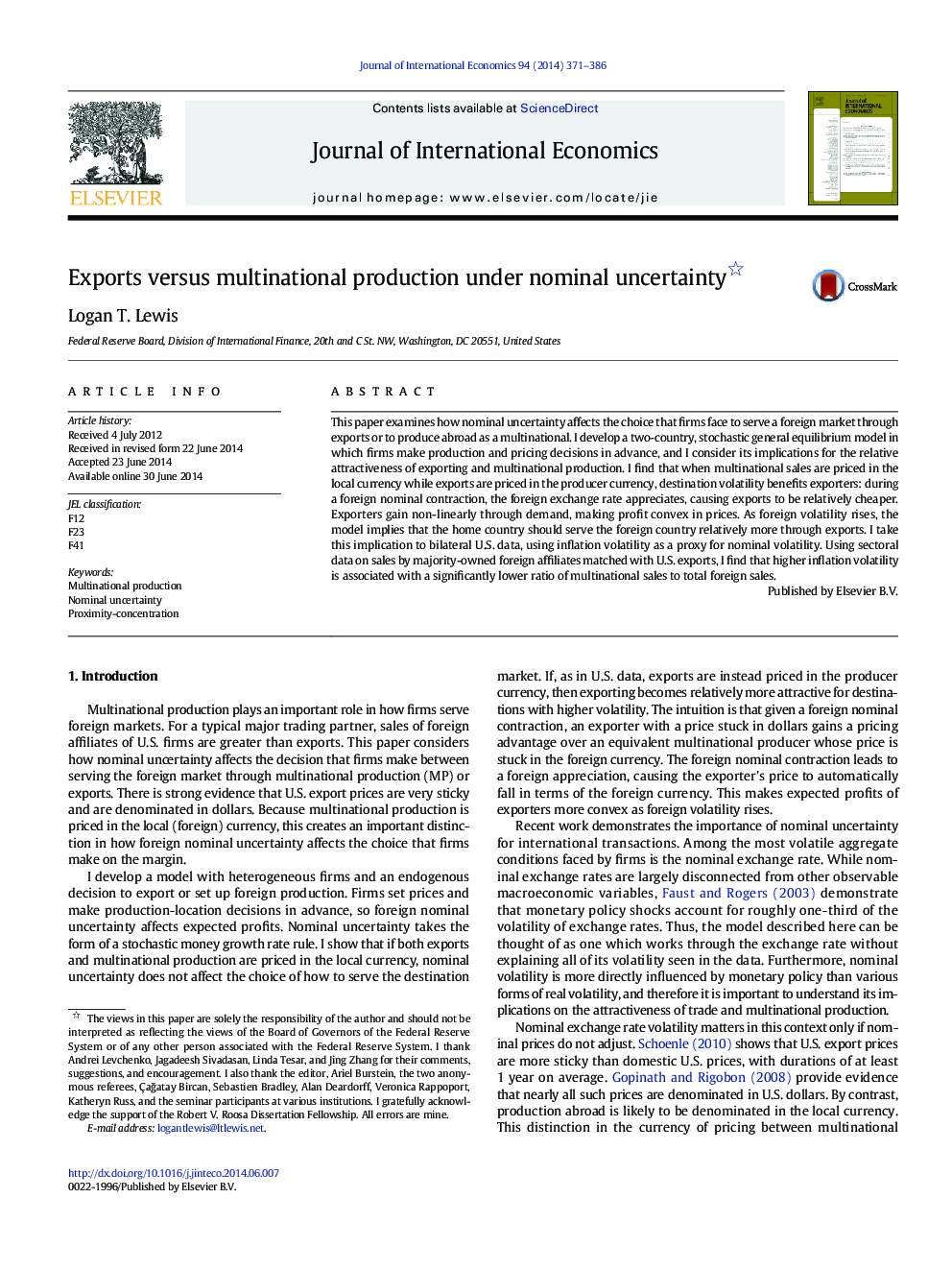| Article ID | Journal | Published Year | Pages | File Type |
|---|---|---|---|---|
| 962958 | Journal of International Economics | 2014 | 16 Pages |
Abstract
This paper examines how nominal uncertainty affects the choice that firms face to serve a foreign market through exports or to produce abroad as a multinational. I develop a two-country, stochastic general equilibrium model in which firms make production and pricing decisions in advance, and I consider its implications for the relative attractiveness of exporting and multinational production. I find that when multinational sales are priced in the local currency while exports are priced in the producer currency, destination volatility benefits exporters: during a foreign nominal contraction, the foreign exchange rate appreciates, causing exports to be relatively cheaper. Exporters gain non-linearly through demand, making profit convex in prices. As foreign volatility rises, the model implies that the home country should serve the foreign country relatively more through exports. I take this implication to bilateral U.S. data, using inflation volatility as a proxy for nominal volatility. Using sectoral data on sales by majority-owned foreign affiliates matched with U.S. exports, I find that higher inflation volatility is associated with a significantly lower ratio of multinational sales to total foreign sales.
Keywords
Related Topics
Social Sciences and Humanities
Economics, Econometrics and Finance
Economics and Econometrics
Authors
Logan T. Lewis,
